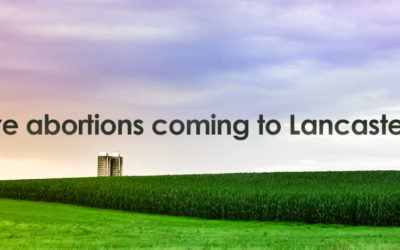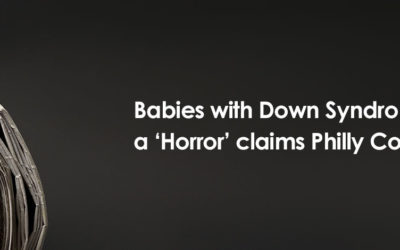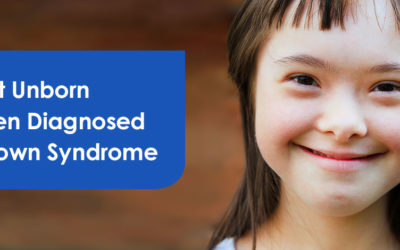Key Points
- Pennsylvania’s biology standards ought to include foundational education on early human life development.
- SB 973 and HB 606 create a healthier Pennsylvania, where those who will raise the next generation will be equipped with knowledge to make informed and healthier choices, resulting in healthier pregnancies and healthier children.
- SB 973 and HB 606 would include ultrasound videos showing vital organ development over seven specified gestational ages in the biology curriculum.
- The biology curriculum would also include high-quality, computer-generated animated renderings of an unborn baby’s development inside the mother’s womb and instruction on the effects of drugs, alcohol, and tobacco on the mother and child.
SUMMARY
As science and technology continue to advance, school curricula must keep up. Recent legislation, Senator Michele Brooks’ SB 973 and Representative Joe Hamm’s HB 606 would ensure Pennsylvania students receive early human life development education. This would empower them with foundational information about life and wellness and help them to make informed decisions to have healthy pregnancies when the time comes.
These bills would have the biology curriculum include ultrasound videos showing vital organ development over seven specified gestational ages in the biology curriculum. The biology curriculum would also include high-quality, computer-generated animated renderings [i.e., a scientifically accurate motion picture] of an unborn baby’s development inside the mother’s womb and instruction on the effects of drugs, alcohol, and tobacco on the mother and child. Students can watch an unborn baby grow from the moment he or she is conceived until the time he or she is born.
Advancements in science and technology have made it possible to view the miraculous growth of babies inside their mothers. According to the Endowment for Human Development, unborn babies have beating hearts and detectable brain waves, fingers, and toes, by nine weeks of pregnancy. At this time, a baby can also suck its thumb, open and close its jaw, stretch, and sigh. By just 10 weeks, these little lives are making breathing motions and can yawn. With this new legislation, public school students will better understand the miraculous progression of human life from conception to birth.
Knowledge about prenatal development—such as the significance of fertilization, implantation, or milestones like thumb-sucking at 10 weeks—equips high school students to make informed health choices that prepare them for healthy pregnancies after high school. For example, understanding critical periods (e.g., when organs form) can emphasize the importance of prenatal care, nutrition, and avoiding harmful substances, leading to better outcomes for future children.
Additionally, learning about early development fosters health literacy, enabling students to understand medical information related to pregnancy. This includes recognizing the importance of early prenatal visits and how environmental factors affect fetal development.
Early human development education is a natural fit with existing biology materials. Many biology curricula already include topics like cell division, genetics, and organ systems. Early human development education integrates these concepts in a real-world context, reinforcing learning outcomes. Early human development, from fertilization through embryonic and fetal stages, is a core aspect of human biology. Teaching it provides students with a comprehensive understanding of how life begins and progresses, aligning with biology’s goal of exploring life processes.
Students learning in public schools throughout the Commonwealth deserve to receive medically and scientifically accurate information about early human development of life inside the womb.
TAKE ACTION
Take Action: Ensure The Best Education for Students Through Early Human Development Education
Act Now
ADDITIONAL ARTICLES
Related Articles
Are abortions coming to Lancaster?
Lancaster Planned Parenthood is hosting a lunch event on Thursday, February 22nd in downtown Lancaster with special guest Cecile Richards to highlight their new facility renovations. “Join Planned Parenthood Keystone and Planned Parenthood Federation of America...
Enter your photo & help protect children with Down syndrome
Pennsylvania Family Council is advocating for passage of new state legislation - House Bill 2050 - that would protect unborn children diagnosed with Down syndrome. We want to help show elected officials and the general public that there are people with Down syndrome...
Babies with Down Syndrome are a ‘Horror’ Claims Philly Columnist
Four reasons why we must fight this outdated and eugenics-driven mentality By: Jeremy Samek I had to read this twice. I even showed it to my wife to make sure I was reading it right. My colleague at the Pennsylvania Family Council had just emailed out a press release...
New legislation would protect unborn children diagnosed with Down syndrome
Ask your State Senator & State Representative to co-sponsor this legislation: Click here to email your elected officials requesting their co-sponsorship Children and individuals with Down syndrome are valued members of their families and communities, and make...
TODAY: Another chance to end late-term abortion
While it is unfortunate that Governor Wolf vetoed Senate Bill 3, which would have finally ended late-term abortion throughout Pennsylvania, we have another opportunity TODAY to make this happen not only in our state but throughout the nation. The U.S. Senate...
Planned Parenthood’s Influence on Top PA Officials
The official policy of the Commonwealth of Pennsylvania is to encourage childbirth over abortion. So, why is Planned Parenthood given hundreds of thousands of taxpayer dollars every year? Abortion in Pennsylvania has been on a steady decline; however, top state...



